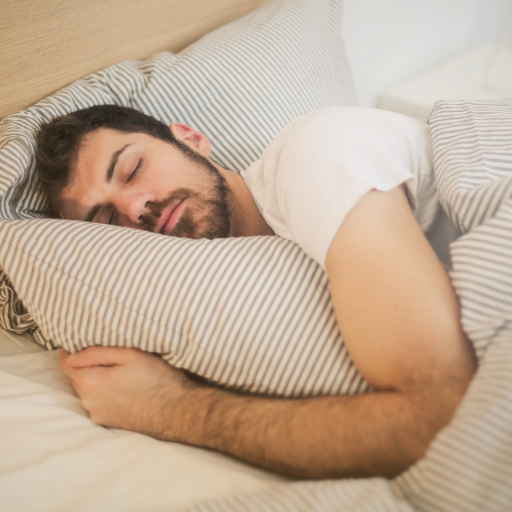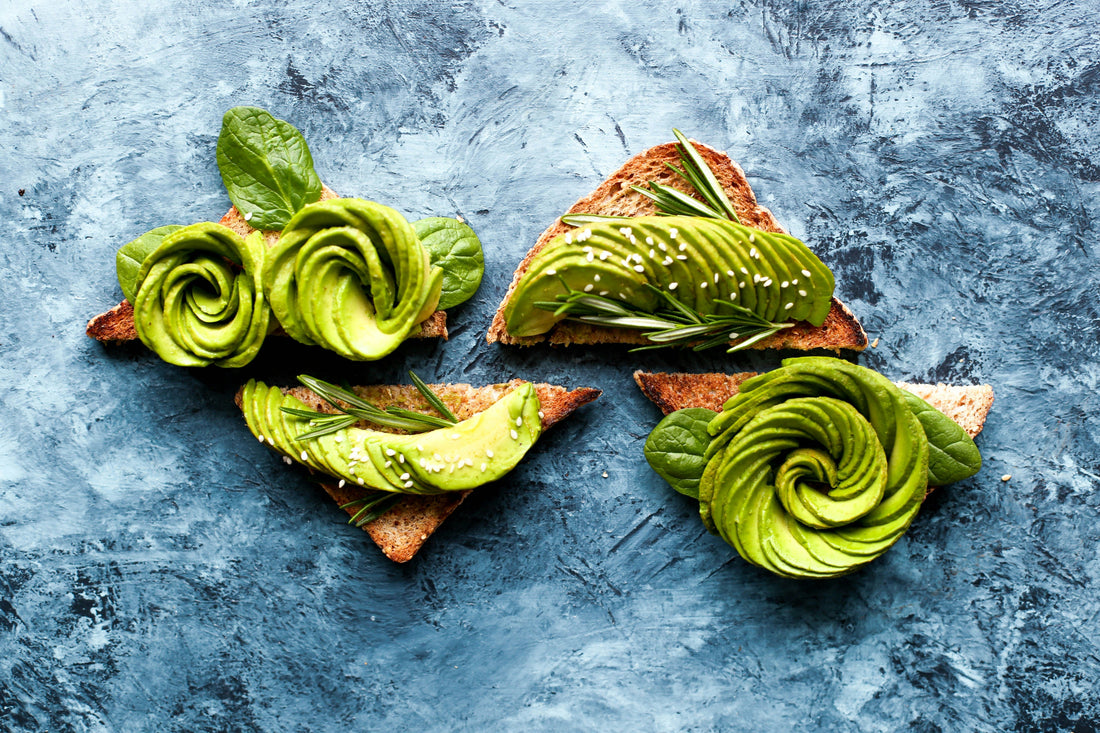Until the 1950s, most people thought of sleep as a passive, dormant part of our daily lives (1). Today, we understand that our brains remain active during sleep, and that sleep is essential to forming memories, and keeping our brains healthy. Read on to learn more about sleep, sleep deprivation effects, and what you can do to get optimal rest.
How sleep works
There are four stages of sleep, divided into two categories; REM (rapid eye movement) and non-REM.
Stage 1 non-REM sleep is the lightest stage as the body's muscles and breathing activity start to relax. During stage 2 non-REM sleep, you enter deeper sleep and your body's heart rate and temperature drop. Considered the deepest stage of sleep, stage 3 non-REM has the greatest arousal threshold. If someone is awoken during this stage, they will experience a phase of mental fogginess and have moderately impaired have mental performance for 30 minutes to an hour (2).
Stage 4, also known as REM (rapid eye movement) is when brain activity peaks during sleep. During this time, most of the body, except the eyes and breathing muscles experience temporary paralysis. Although dreams can happen during any stage, the most intense dreaming takes place during REM sleep. The REM sleep stage is believed to be essential for the brain in enhancing learning and memory (4).
How the body regulates sleep
The body has two biological mechanisms that tell the body it needs to sleep. Circadian rhythms control your timing of sleep and cause you to be sleepy at night as well as your tendency to wake in the morning without an alarm, in tune with your body clock (5). This is best described by the feeling of increased energy in the morning while under the daylight and sleepiness at night especially after we turn the lights off.
Sleep-wake homeostasis is the body's internal sleep tracker. The homeostatic sleep drive reminds the body to sleep after a certain time and regulates sleep intensity. This sleep drive gets stronger every hour you are awake and causes you to sleep longer and more deeply after a period of sleep deprivation (6).
Adults are recommended to get at least seven hours of sleep (7). But besides the number of hours, there are also other factors that affect our sleep quality. Poor sleep quality leads to easily interrupted sleep and fatigue while awake. Sleep deprivation effects can be caused by bad sleeping habits or even sleep disorders. For the latter, seeking medical treatment may be helpful.
Sleep deprivation effects
According to the Sleep Health Foundation, four out of ten Australian adults experience poor sleeping quality (13). Loss of sleep may result in the following:
Reduced mental performance
Not getting enough or good quality sleep can lead to experiencing problems like grogginess, tiredness, and reduced mental performance.
Health concerns
Poor sleeping habits can negatively impact blood pressure, cardiovascular health, and blood sugar levels. Inadequate sleep can also result in psychological conditions.
Workplace problems
In the workplace, sleep deprivation may result in loss of productivity due to fatigue. It may even lead to absenteeism, as a worker has to take time off to recover from poor sleep habits (13). Another possible result is workplace injuries due to the lack of focus that arises from less sleep (13).
Tips on how to sleep better
Create a relaxing bedtime environment
Stress during bedtime can come from several sources and encourage the heart rate and blood pressure to increase (7). Try taking a warm bath an hour or two before bed. When you wake, make sure to get some natural light in your room to tell your body clock: it's time to wake. This will also tell your brain to hold off on producing melatonin until it gets darker and it's time to sleep again. Always remember that consistency is the key.
Exercise regularly
The connection between sleep and exercise has been well studied over the years. Major sleep deprivation effects can be mitigated with regular exercise that promotes better sleep quality and even increase the amount of time a person sleeps (8).
Opt for supplementation
You can ensure the body receives sufficient nutrients through a well-balanced and healthy diet plan. Supplementation can help you achieve your daily requirements of these nutrients when paired with a well-rounded diet. Ashwagandha has been used in Ayurvedic (Indian) and Chinese medicine as a natural remedy for sleep, stress and overall vitality.
Ashwagandha's herbal substance aids in reducing the time taken to sleep and promotes better sleep quality. It naturally contains alkaloids that act as a sedative and help in reducing sleep deprivation effects.
Ashwagandha also contains the active sleep-inducing component triethylene glycol in its leaves. This component was seen to induce significant non-REM sleep, as well as slight changes to REM sleep (14).
Vitable Australia's Ashwagandha only uses high quality plant extracts, made using gentle solvents. Take the expert quiz and learn how ashwagandha can support your sleep as part of your Vitable custom supplements. What's better, our services also come with vitamin delivery where you can get your vitamin packs anywhere in Australia.
*Always read the label. Follow the directions for use. If symptoms persist, talk to your health professional. Vitamin and/or mineral supplements should not replace a balanced diet.
References:
- American Sleep Association. What is Sleep and Why is It Important? Published on https://www.sleepassociation.org/about-sleep/what-is-sleep/. Accessed Oct 27, 2021.
- Aakash K. Patel, Vamsi Reddy, John F. Araujo. Physiology, Sleep Stages. NCBI. Updated April 22, 2022 on https://www.ncbi.nlm.nih.gov/books/NBK526132/. Accessed Oct 27, 2021.
- Eric Suni, John DeBanto. How Sleep Works. Sleep Foundation. Updated Oct 23, 2020 on https://www.sleepfoundation.org/how-sleep-works. Accessed Oct 27, 2021.
- Division of Sleep Medicine at Harvard Medical School. Sleep, Learning and Memory. Published Dec 18, 2007 on http://healthysleep.med.harvard.edu/healthy/matters/benefits-of-sleep/learning-memory. Accessed Oct 27, 2021.
- NIH. Brain Basics: Understanding Sleep. Published on https://www.ninds.nih.gov/Disorders/Patient-Caregiver-Education/Understanding-Sleep. Accessed Oct 27, 2021.
- NIH. Brain Basics: Understanding Sleep. Published on https://www.ninds.nih.gov/Disorders/Patient-Caregiver-Education/Understanding-Sleep. Accessed Oct 27, 2021.
- Centers for Disease Control and Prevention. How Much Sleep Do I Need? Published on https://www.cdc.gov/sleep/about_sleep/how_much_sleep.html. Accessed Oct 27, 2021.
- Danielle Pacheco. “Exercise and Sleep”. Sleep Foundation. Published Jan 22, 2021 on https://www.sleepfoundation.org/physical-activity/exercise-and-sleep. Accessed on Oct 27, 2021.
- Mayo Clinic. Sleep Disorders. Published on https://www.mayoclinic.org/diseases-conditions/sleep-disorders/symptoms-causes/syc-20354018. Accessed Oct 27, 2021.
- Sleep.Org. How Sleep Works. Published Mar 12, 2021 on https://www.sleep.org/how-sleep-works/. Accessed Oct13, 2021.
- Christopher E. Kline, Ph.D. “The bidirectional relationship between exercise and sleep: Implications for exercise adherence and sleep improvement”. National Center for Biotechnology Information. Published Nov1, 2015 on https://www.ncbi.nlm.nih.gov/pmc/articles/PMC4341978/. Accessed on Oct 27, 2021.
- Kumar, A., Kalonia, H.. Protective effect of Withania somnifera Dunal on the behavioral and biochemical alterations in sleep-disturbed mice. Indian Journal of experimental biology, Published 2017 on https://www.ncbi.nlm.nih.gov/pubmed/17585686. Accessed Oct 27, 2021
- Sleep Health Foundation. Asleep on the job: Costs of inadequate sleep in Australia. Published August 2017 on https://www.sleephealthfoundation.org.au/files/Asleep_on_the_job/Asleep_on_the_Job_SHF_report-WEB_small.pdf. Accessed November 1, 2021
- Kumar, A., Kalonia, H. Effects of Withania somnifera on Sleep-Wake cycle in Sleep-Disturbed Rats: Possible GABAergic Mechanism. Published November 2008 on https://www.ncbi.nlm.nih.gov/pmc/articles/PMC3040882/ . Accessed Nov 24, 2021







